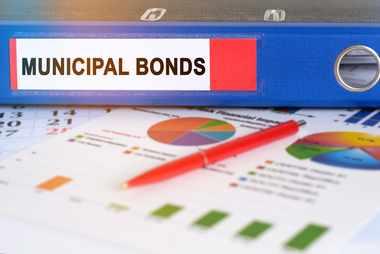
Tax-Free Municipal Bonds: Worth It?
 Municipal bonds are stable, income-producing vehicles that are used to fund local and state government projects, such as buildings and highways. They are also tax free at the federal level. Are they right for you? What else should you be weighing in your decision about whether to invest in tax-free municipal bonds?
Municipal bonds are stable, income-producing vehicles that are used to fund local and state government projects, such as buildings and highways. They are also tax free at the federal level. Are they right for you? What else should you be weighing in your decision about whether to invest in tax-free municipal bonds?
How they work
If you buy bonds issued by your state or locality, you may not be required to pay the corresponding state or local taxes levied against nonresidents. This makes certain munis triply tax free. However, munis have lower yields than their corporate-backed equivalents.
It’s wise to compare the yields of taxable investment-grade and government bonds with comparable maturities by using the tax-equivalent-yield formula: tax-free yield/(1-tax rate). This gives you the real, post-tax net yield of a corporate bond, so when you compare its yield to that of a muni, you’re comparing apples to apples. Higher-income investors, who have higher tax bills, benefit more from municipal bond yields than do folks who are in lower tax brackets.
A closer look
Like with other bonds, the principal of munis is inversely proportionate to interest-rate movements. Debt securities with longer maturities incur greater fluctuations in market value as interest rates rise and fall. In low-interest-rate times, you’ll risk principal because rates are more than likely to rise and your principal to decline, and investors can suffer losses to principal if they sell a bond prior to maturity.
Depending on the inflation rate, a municipal bond could offer real returns in some years and barely keep pace with inflation in other years. Indeed, investing solely in low-yielding munis, though safe, will not grow your investments. It’s best to have a balance of bonds and equities to offset the risks of eroding purchasing power.
How safe are they? It’s rare that a state or municipality can’t meet its debts, but it happens. Look at the debt crisis in Puerto Rico, which defaulted on four bonds, effecting $22.6 billion in debt. The territory has stated that it will reduce $35 billion in bonds and other claims by more than 60%. Though some munis are insured, not all are. Only 5.6% of new municipal bonds issued in 2019 were insured, compared with 46.8% in 2007.
Municipal bonds can offer potential advantages and downsides to investors. These issues tend to be highly rated and have low refinancing risk, low default rates and a low historical correlation with other major asset classes. But very few insured bonds are coming to market, so there’s a greater need to do your homework. Whether tax-free municipal bonds make sense for you depends on your income, investment goals and risk appetite. Work with financial and tax professionals to see whether munis are right for you.



